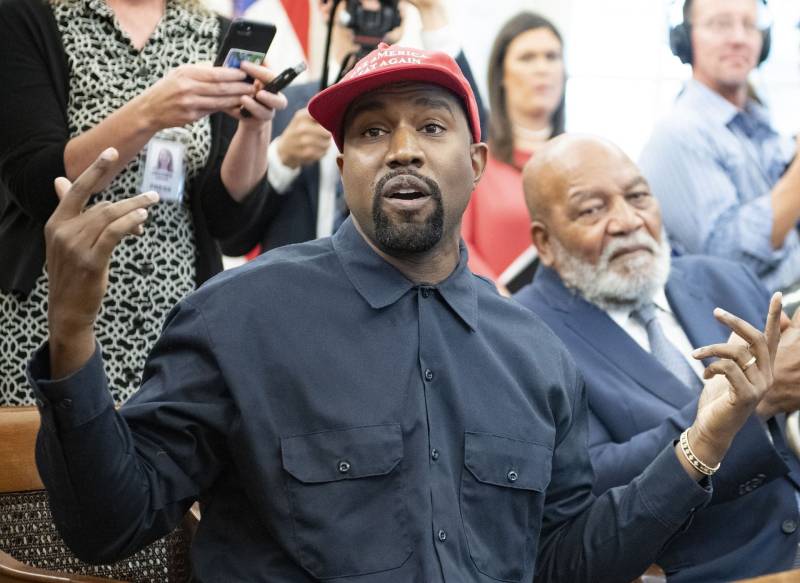 |
|
 |
|
 |
|
 |
|
 |
|
 |
|
 |
|
 |
|
 |
|
 |
|
 |
|
 |
|
 |
|
 |
|
 |
|
Cryptocurrency News Articles
Gensler Exits the SEC, Leaving a Mixed Legacy of Reforms and Crypto Crackdowns
Jan 16, 2025 at 07:30 pm
With his exit aligning with the upcoming presidential transition to Donald Trump's administration, Gensler spoke candidly about his leadership's challenges, particularly in crypto regulation, corporate governance, and treasury market reforms.

In an interview ahead of his departure from the Securities and Exchange Commission (SEC), Gary Gensler reflected on his tenure and discussed key aspects of the Commission's work, including crypto regulation, corporate governance, and treasury market reforms.
Gensler highlighted the SEC's efforts to protect investors and address industry missteps, citing an example where Robinhood agreed to pay $45 million to settle SEC charges related to violations of over 10 securities laws. These enforcement actions, he said, demonstrate the SEC's focus on ensuring investor protection.
Regarding cryptocurrency, Gensler reiterated his view that Bitcoin is not a security, distinguishing it from other tokens that have faced regulatory scrutiny. He pointed out a history of noncompliance within the crypto industry, particularly concerning anti-money laundering laws and sanctions violations.
“Bitcoin’s not a security, but these 10,000 or 15,000 other tokens—the investing public has been hurt over the many years,” Gensler said.
Highlighting other areas of the SEC's work, Gensler noted progress in shortening settlement cycles, improving U.S. Treasury market stability, and tightening corporate governance. He mentioned a three-month waiting period between filing and executing trades mandated by insider trading rules, which he described as critical for ensuring fairness in markets.
The $28 trillion Treasury market, a linchpin of U.S. financial stability, received particular attention during Gensler's tenure at the SEC. He collaborated with Treasury Secretary Janet Yellen and Federal Reserve Chair Jay Powell on market reforms to sustain resilience as the market is projected to grow to $36 trillion in the next four years.
“The $28 trillion Treasury market is predicted by the Congressional Budget Office to grow to about 35 or 36 trillion in four years. It’s going to grow 25%,” Gensler said.
Despite these achievements, Gensler faced criticism for what some viewed as an overly litigious approach to regulation. He addressed this concern by emphasizing the SEC's role as a “law enforcement agency” tasked with ensuring transparency and fairness in capital markets.
“We have laws. Congress has passed those laws. Of course, they can change that,” he said, expressing his belief in the existing regulatory framework.
Gensler’s Crypto Policies and Investor Protection
The future of the crypto industry featured prominently in Gensler's exit interview. While critics argued his policies stifled innovation, Gensler maintained a cautious stance, highlighting the importance of investor protection.
“The crypto field trades mostly on sentiment and much less on fundamentals,” he said, underscoring the need for greater transparency in token projects.
Bitcoin, however, stood apart in Gensler's analysis. He reiterated the SEC's stance that Bitcoin is not a security but remained reserved about its long-term value. “It’s hard to predict… 7 billion people want to trade it, just like we do have gold for 10,000 years,” he said, adding that other crypto projects must demonstrate real-world use cases to ensure their survival.
Critics also pressed him on whether the SEC, under his leadership, had unintentionally hindered Bitcoin's progress. Gensler pointed to the introduction of Bitcoin exchange-traded funds based on futures contracts, which he framed as a step forward for the institutional adoption of digital assets.
Gensler also acknowledged the evolving landscape of corporate priorities, including the rollback of diversity and climate initiatives by some Fortune 500 companies.
“Markets will figure out whether the climate disclosure is relevant and material to their investment decisions,” he said.
As he prepares to leave public office, Gensler expressed pride in the SEC's achievements, from implementing structural market reforms to navigating the complexities of a $120 trillion capital market. He summarized the SEC's broader mission as ensuring that capital markets are “competitive, deep, and… lots have access.”
While his tenure has been polarizing, Gensler emphasized the importance of disclosure and fairness across industries. “It’s a great privilege to serve,” he said, adding that he remains optimistic about the SEC's ability to adapt to future challenges, including the rise of artificial intelligence and other transformative technologies.
Gensler will be succeeded by Paul Atkins, who is expected to bring a different approach to crypto regulation. Atkins, an SEC commissioner from 2002 to 2008 during President George W. Bush's administration, is known for his pro-deregulation stance and support for financial innovation, including digital assets.
In announcing the nomination, Trump praised Atkins as a “proven leader for common-sense regulations” and highlighted his commitment to “robust, innovative capital markets” designed to meet investor needs and strengthen the U.S. economy. He also noted Atkins' recognition of the role digital assets and other innovations play in advancing America's economic leadership.
Disclaimer:info@kdj.com
The information provided is not trading advice. kdj.com does not assume any responsibility for any investments made based on the information provided in this article. Cryptocurrencies are highly volatile and it is highly recommended that you invest with caution after thorough research!
If you believe that the content used on this website infringes your copyright, please contact us immediately (info@kdj.com) and we will delete it promptly.
-

-

- The Best Cryptos to Join This Month: Qubetics, Toncoin, and Stellar
- Feb 24, 2025 at 06:40 am
- With the market constantly shifting, finding the Best Cryptos to Join This Month can feel like searching for a needle in a digital haystack. But fear not—we've done the research, crunched the numbers, and found three standout projects that are making waves in the crypto community.
-

-

-

- Cebu Pacific Welcomes Singapore Management University Faculty and Officials for Exclusive Aplus Hangar Visit
- Feb 24, 2025 at 06:30 am
- Cebu Pacific (PSE: CEB), the Philippines’ leading carrier, welcomed faculty and officials from Singapore Management University (SMU) and members of its International Advisory Council (IAC) for an exclusive visit to its Aplus hangar.
-

-

-

-

- Today's Market Spotlight: Pi Network, XYZVerse, Chainlink, XRP, and Solana
- Feb 24, 2025 at 06:30 am
- Today’s market spotlight falls on several digital currencies capturing investor attention. From innovative platforms like Pi Network and XYZVerse to established names like Chainlink, XRP, and Solana, these assets are making significant moves.






















































